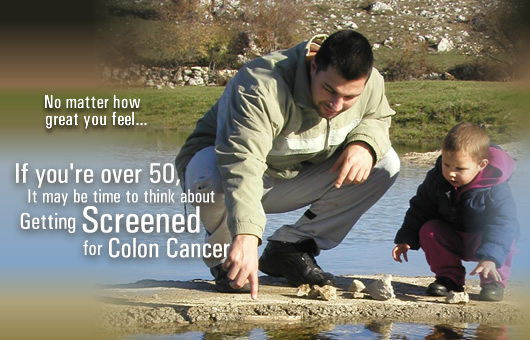To ensure our continuing efforts to update all physicians, here are the most recent stats (2022) from the Canadian Cancer Society.
Last year (2022) about 24,300 Canadians were diagnosed with colon cancer.
- About 9,400 people (5,200 men and 4,200 women) will die from this disease.
- This Represents 10% of all new cancer cases in 2022.
- On average, 67 Canadians will be diagnosed with colorectal cancer every day
- On average, 26 Canadians will die from colorectal cancer every day
- It is estimated that about 1 in 16 Canadian men will develop colorectal cancer during their lifetime and 1 in 34 will die from it.
- It is estimated that about 1 in 19 Canadian women will develop colorectal cancer during their lifetime and 1 in 40 will die from it.
- Colon cancer is preventable through recommended screening and is treatable and curable when detected and treated in its early stages.
- There is an increasing number of individuals surviving colorectal cancer because of early detection and better treatments available.
Once again, most people do not know that colorectal cancer is the second leading cause of death from cancer.
What is colorectal cancer?
Most colorectal cancer starts in the cells that line the inside of the colon or the rectum. The colon and rectum are part of your digestive system, where food is changed into energy and the body rids itself of waste matter.
The colon (known as the large bowel or large intestine) joins the small intestine to the rectum. Food moves from the stomach to the small intestine, where your body continues to break it down. When food is completely digested, it moves from the small intestine into the colon, where water is removed. The last part of the colon is known as the rectum. This is where waste is stored. When you have a bowel movement, waste leaves the body through the opening called the anus.
Cancer of the small intestine is very rare, so when people talk about bowel cancer, they usually mean colorectal cancer. Colorectal cancer is the third most common cancer for both men and women in Canada. For men, prostrate cancer is number two, and for women, breast cancer is number two, however overall, colorectal cancer is the second leading cause of death from cancer.
What causes colorectal cancer?
There is no single cause of colorectal cancer, but some factors appear to increase the risk of developing it:
- age – particularly after 50
- polyps – small growths on the inner wall of the colon and rectum
- family history
- diet
- obesity
- physical inactivity
- heavy alcohol consumption
- living with inflammatory bowel disease (ulcerative colitis or Crohn’s disease)
- smoking
A family history of colorectal cancer in close relatives (parents, siblings or children) increases risk, especially if the relatives developed cancer before the age of 45.
A condition that runs in families called Familial Adenomatous Polyposis (FAP) also increases risk. People in families with FAP or with a large number of colorectal cancer cases are often monitored closely so that cancer will be diagnosed early if it develops.
Signs and symptoms of colorectal cancer
Colorectal cancer can develop over a long time without causing any signs or symptoms. When symptoms do start they are often vague and easily mistaken for more common illnesses. The symptoms become more severe if the bowel or rectum becomes obstructed, constricted or ulcerated.
Having the following signs and symptoms does not necessarily mean that you have colorectal cancer. They could be caused by other problems, so see your doctor to be sure.
- blood in or on the stool (either bright red or very dark in colour)
- a persistent change in normal bowel habits such as diarrhea, constipation, or both, for no apparent reason
- stools that are narrower than usual
- general stomach discomfort (bloating, fullness and/or cramps)
- frequent gas pains
- a strong and continuing need to empty your bowels, but with little stool
- a feeling that the bowel does not empty completely
- weight loss
- anemia (constant tiredness, shortness of breath)
- vague, dull pain or pressure that may spread to the back
- nausea or indigestion
Screening for colorectal cancer
- Colorectal cancer screening means checking for colorectal cancer as part of routine medical care when there are no symptoms present.
- Colorectal cancer responds best to treatment when it is found and treated as early as possible. Treatment is most effective before the disease spreads outside of the colon.
Average risk individuals
- The Canadian Cancer Society recommends that men and women age 50 and over have a fecal occult blood test (FOBT) at least every 2 years.
- Follow-up for a positive test could include a colonoscopy, double contrast barium enema (an x-ray of the large intestine) and sigmoidoscopy.
High risk individuals
- Those who are at higher than average risk of developing colorectal cancer should discuss an individual plan of surveillance with their doctor. High risk individuals include those with:
- a first-degree relative with colorectal cancer (such as a parent, sibling or child)
- a personal history of colorectal cancer
- inflammatory bowel disease such as ulcerative or Crohn\'s disease
- some inherited syndromes such as FAP (familial adenomatous polyposis) or HNPCC (hereditary non-polyposis colon cancer)
- benign polyps of the colon or rectum
Screening programs
Colorectal cancer screening programs should ensure that:
- people are given information about the risks and benefits of the screening
- the impact of positive test results are explained
- people whose fecal occult blood tests are positive and referred for definitive testing in a timely manner
- a database is created to ensure that candidates for tests and their physicians notified when testing is recommended, and to enable the results of the colorectal cancer screening program to be analyzed and reported
- the most effective technology should be used
The Canadian Cancer Society accepts convincing evidence that the death rate from colorectal cancer can be reduced significantly if this screening takes place widely among the Canadian population.
 Procedure Instructions.
Procedure Instructions.


